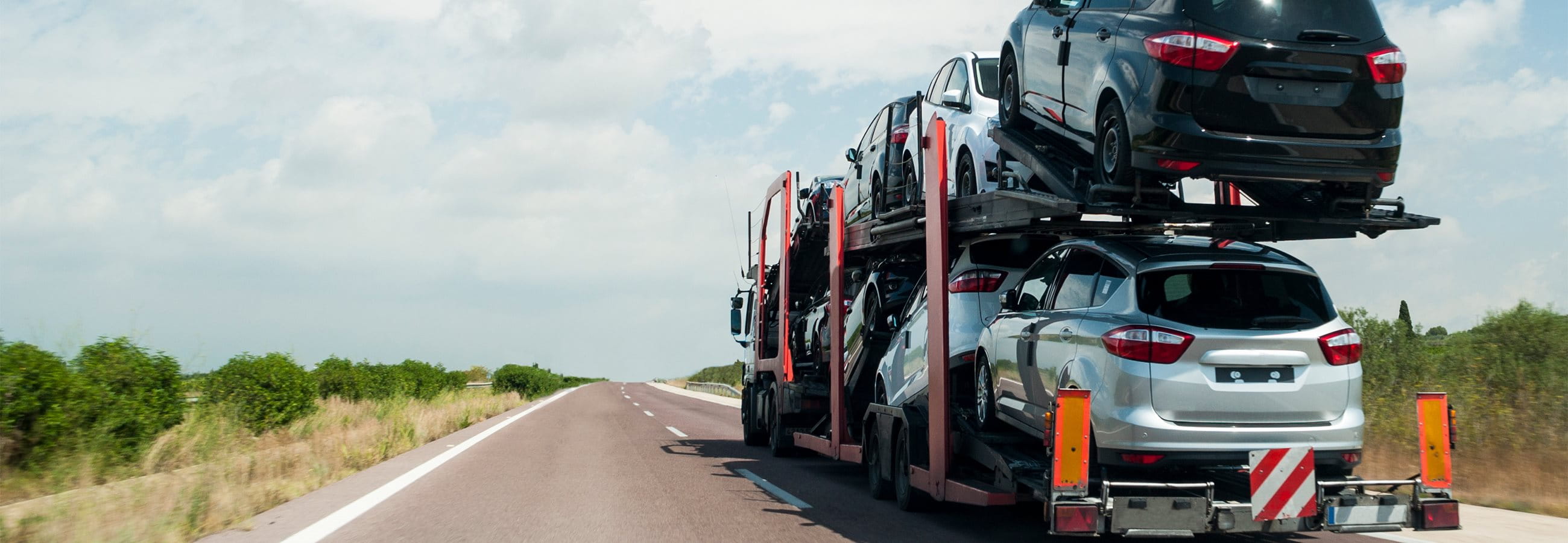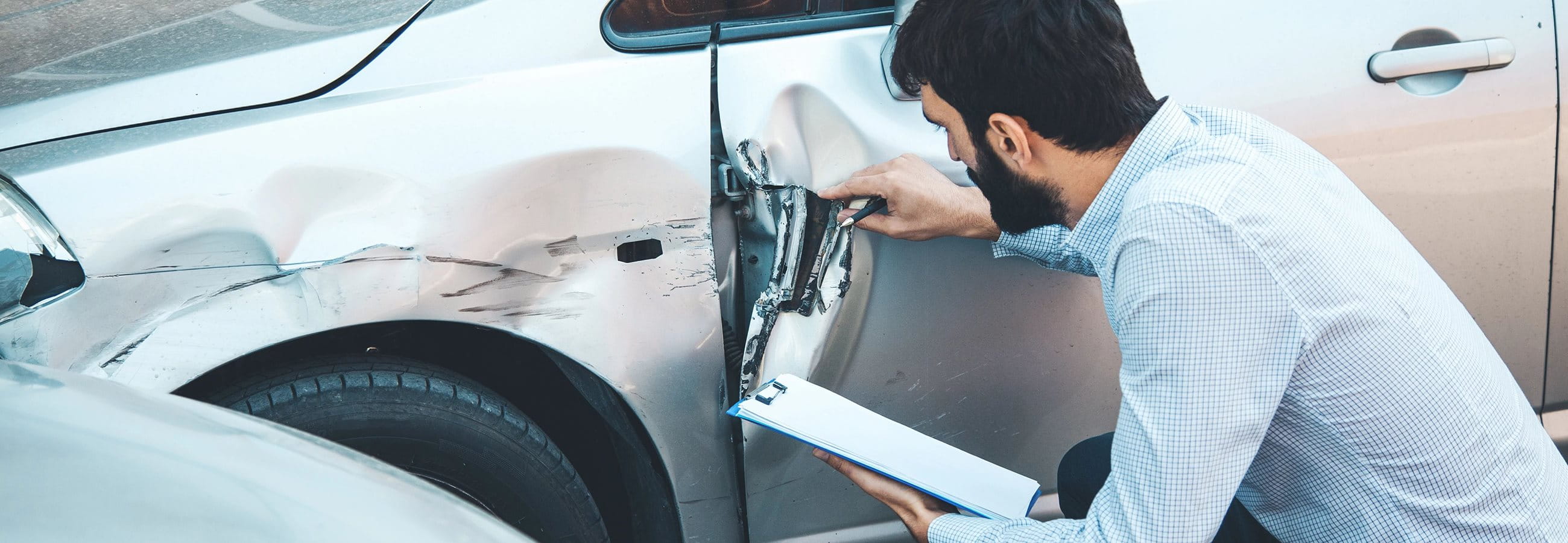Frequently asked questions
Do I need to prepare for crossing the border?
To import your household goods, pets and/or car duty-free into Switzerland, you will need certain documents. You should therefore do the following things before moving:
- Fill in form "18.44 Household effects". You can find the form on the Website of the Federal Office for Customs and Border Security.
- Prepare an inventory list of your household goods. You can simply do this using a sheet of paper. Rough details are sufficient. Example: 2 boxes of books, 5 boxes of clothes, 2 boxes of dishes, etc. List valuables or larger appliances separately. You can find an example list on the website of the Federal Office for Customs and Border Security .
There are, however, goods that you have to pay duty on. These include alcoholic beverages or weapons. You must note such items on your inventory list as well. It's best to create a "Goods to be cleared" section for this purpose.
You do not have to register your move in advance to a customs office. However, if you send your documents to the appropriate customs office two days before the move, things will go more quickly on moving day.
Do I have to pay customs duty on my belongings?
No, not for the most part. You can import most of your belongings as well as your pets and car duty free. To do this, you must enter the country during the opening hours of a customs office for commercial goods and meet the following requirements:
- You can prove that you are moving your place of residence to Switzerland. For this purpose, a rental agreement or an employment contract and confirmation that you have deregistered in your country is sufficient. You do not need a confirmation of residence for customs.
- You are from one of the following countries: Austria, Belgium, Cyprus, Czech Republic, Denmark, Estonia, Finland, France, Germany, Greece, Hungary, Iceland, Ireland, Italy, Latvia, Liechtenstein, Lithuania, Luxembourg, Malta, Netherlands, Norway, Poland, Portugal, Slovakia, Slovenia, Spain, Sweden or the United Kingdom.
- You have been using your household goods for at least six months. You plan to continue using your belongings.
Good to know: Students do not have to meet these requirements. They can import their furniture, personal belongings and educational materials even if they do not move their place of residence to Switzerland.
You can find further information on the following pages:
How do I get a residence permit?
Do you come from an EU/EFTA country and will you be working in Switzerland for longer than three months? Then register with your residential community no later than 14 days after your arrival in Switzerland, where you can apply for a residence permit. To do this, you will need a valid identity card or passport and your employment contract. You will be issued a residence permit based on the duration of the employment relationship:
- Permit L: if you stay in Switzerland for less than one year.
- Permit B: if you are staying in Switzerland for longer than one year or for an indefinite period of time.
For further information, please visit the website of the State Secretariat for Migration SEM.
Which insurances are mandatory in Switzerland?
In Switzerland, motor vehicle liability insurance (car insurance), health insurance and accident insurance are mandatory.
- Car insurance: The car insurance covers damage to other people's vehicles, persons or property that you cause with your car. Without this insurance, your vehicle cannot be registered. In our guide article "Importing a car into Switzerland", you can find out how to import your vehicle correctly into Switzerland.
- Health insurance: Every person living in Switzerland must have basic health insurance with a Swiss health insurance company. The benefits provided in the basic insurance are the same from every health insurance company. You can also take out supplementary insurance, such as dental insurance, on a voluntary basis.
- Accident insurance: If you work more than eight hours per week for the same employer, you are insured through them. If not, then you must purchase accident insurance through your health insurance company.
Tip: It pays to compare: Both with car and health insurance. The best way to find the right car insurance is to use our free insurance comparison.
Which insurances are recommended?
We strongly recommend that you take out the following types of insurance:
- Personal liability insurance: A Personal liability insurance pays out if you cause harm to people or their property. A broken vase, a crack in the sink: Accidents can happen quickly. Some landlords require their tenants to take out personal liability insurance. And in some communities in Switzerland, dog owners must also take out personal liability insurance. Find out in our guide article "Reasons for personal liability insurance", whether personal liability insurance is worthwhile for you.
- Household contents insurance: Household contents insurance protects your property in the event of house fires, water damage or natural hazards as well as theft.
With Zurich, you can take out personal liability insurance and contents insurance together as household insurance. Find out more in our guide article "Household insurance – comprehensively protected at home".
We also recommend taking out a Disability Insurance. Because anyone can become ill. In Switzerland, living costs are relatively high. Could you get by on just 60 percent of your current salary if you were ill?
What's more, the following types of insurance may also be worthwhile for you:
- Insurance of valuables: The Insurance of Valuables All-Risk coverage will pay out if your favorite items are lost, damaged or even destroyed. Would you like to insure your precious wedding ring or your treasured musical instrument? Find out whether valuables insurance makes sense for you in our guide article.
- Bicycle insurance: With the[Zurich Bike Insurance, your beloved bike or e-bike is comprehensively protected: in the event of theft, damage or destruction.
What social insurances are there in Switzerland and who pays what?
Swiss social insurances include the following types of insurance:
- Health insurance
- Accident insurance (UVG)
- Unemployment insurance (ALV)
- Retirement provision (AHV)
- Family allowances
You are responsible for your own health insurance. You must be covered by a basic health insurance policy no later than three months after you move to Switzerland. The benefits provided in the basic insurance are the same everywhere. However, costs may vary from health insurance company to health insurance company. It's therefore worth comparing premiums.
You must include accident insurance in your health insurance if you work less than eight hours a week for the same employer. If you work more than eight hours a week for the same employer, they will pay your accident insurance.
Contributions to unemployment insurance (ALV) and retirement provision (AHV) are paid equally by you and your employer. The ALV and AHV contributions are deducted directly from your salary. Contributions to family allowances are paid exclusively by your employer.
How does Switzerland’s three-pillar concept work?
The Swiss retirement provision system is based on three pillars:
- state retirement provision (1st pillar)
- occupational retirement provision (2nd pillar)
- private retirement provision (3rd pillar)
The aim of the Swiss retirement provision system is to provide the country's population with a reliable income for all life situations. For example, after retirement, in the event of the death of a partner or in the event of permanent disability due to illness or accident.
1st pillar – state retirement provision
The 1st pillar is about ensuring subsistence. This pension is intended to cover the minimum necessary living requirements. The 1st pillar consists of old-age and survivors' insurance (OASI), disability insurance (DI) and the income compensation scheme (EO).
2nd pillar – occupational retirement provision
The 2nd pillar ensures your accustomed standard of living. For occupational retirement provision, employees and employers pay at least the same amount into a pension fund. The employer can also volunteer to pay more.
3rd pillar – private retirement provision
The assets in the 3rd pillar serve to close any pension gaps from the 1st and 2nd pillars. It also allows you to retire earlier or fulfill dreams and wishes after retirement.
Find out more at vita.ch
Can I make private provision for my old age in Switzerland?
Yes, you can. In fact we recommend it, because it is becoming increasingly important to make private retirement provision. What's more, you can even save tax with a retirement savings account pillar 3a. You simply deduct the amount paid in from your taxable income when you file your tax return.
The amount you can pay in to the 3rd pillar depends on whether you are a member of a pension fund. If you are a member of a pension fund, you can pay in a maximum of CHF 6,883 in 2022.
You are a member of a pension fund through your employer if you earn more than CHF 21,510 per year.
Do I have to adjust my personal retirement provision when I move to Switzerland?
In Switzerland, we have a different pension system to that of your old country. You should therefore review your existing contracts and policies for personal retirement provision. It's quite possible that your current policy regulates pension benefits differently, for example in the event of disability. What's more, you cannot deduct foreign pension fund payments from taxable income.
In Switzerland, you can save tax annually with a Pillar 3a account. You simply deduct the amount paid-in from your taxable income when you file your tax return. In 2022 you can pay a maximum of CHF 6883 into the pillar 3a account.
It's best to discuss your personal situation with a retirement provision expert. We analyze your personal situation and show you the various options available to you. Make an appointment for this.
What happens to my money in the 1st and 2nd pillar when I leave Switzerland again?
You will receive money from the 1st pillar, governmental retirement provision, when you retire. Until then, the contributions remain in Switzerland. The requirement for a pension is that you have paid into the 1st pillar for at least one year.
Money in the 2nd pillar, occupational retirement provision, is personally-saved retirement assets. You will receive this money when you leave Switzerland. However, a distinction is made between the mandatory and super-mandatory part. If you move to an EU or EFTA country, only the super-mandatory part of the occupational retirement provision will be paid out to you. The mandatory credit is transferred to a [vested benefits account (https://www.zurich.ch/en/private-customers/retirement-provision-assets/assets-investments/vested-benefit-solution-funds). You will then receive the amount on the vested benefits account upon retirement. However, if you emigrate to a country that is outside the EU and EFTA countries, then you will receive the entire credit balance from the pension fund.
Bank or insurance: what are the differences in the 3rd pillar?
The biggest differences between a pillar 3a solution from a bank or an insurance company relate to the risk protection for you and your family, your savings goal and the period of insurance.
Risk protection for families and savings goal
With an insurance company, you take out an insurance contract under pillar 3a. This includes insurance coverage in the event of disability and/or death. This means that if you become disabled, your insurance will pay the annual amount due into pillar 3a for you. You will therefore continue to save for retirement, even if you can no longer work. Depending on the retirement provision solution you choose, you will also be paid a disability pension until retirement. In any case, you will meet your defined savings target. In the event of death, a lump-sum death benefit will be paid to your surviving dependents. This means that your loved ones will at least be protected from the financial consequences of this misfortune. You pay for this insurance coverage with a portion of your premium.
When you open your pillar 3a with a bank, the main focus is on the savings process. You and/or your family will not be protected against the financial consequences of disability or death. If you can no longer pursue your work, you will no longer be permitted to pay into pillar 3a. In this case, you will not reach your defined savings goal.
Period of insurance
Insurance contracts under pillar 3a always have a fixed period of insurance. This usually extends until the normal retirement age. You undertake to pay a certain amount into the pillar 3a policy on a regular basis.
After the third insurance year, however, you have the option of pausing payments for up to three years. Insurance coverage does not expire in this case. This means that you will continue to be fully insured if, for example, you go on parental leave or spend time abroad. The only consequence is that your savings target will be reduced by the amount of the paused payments.
Well-protected in your new home
We help you get started in your new home

Direct car import to Switzerland

So that everything goes well during the move

Change address: This checklist ensures no one is forgotten

Comparing car insurance

Vehicle registration: the easy way

Comprehensive cover or partial casco – which one do I need?

When the vase gets smashed

The 3 pillars concept – an overview

Practical tips for your retirement provision

Working across the Swiss border




